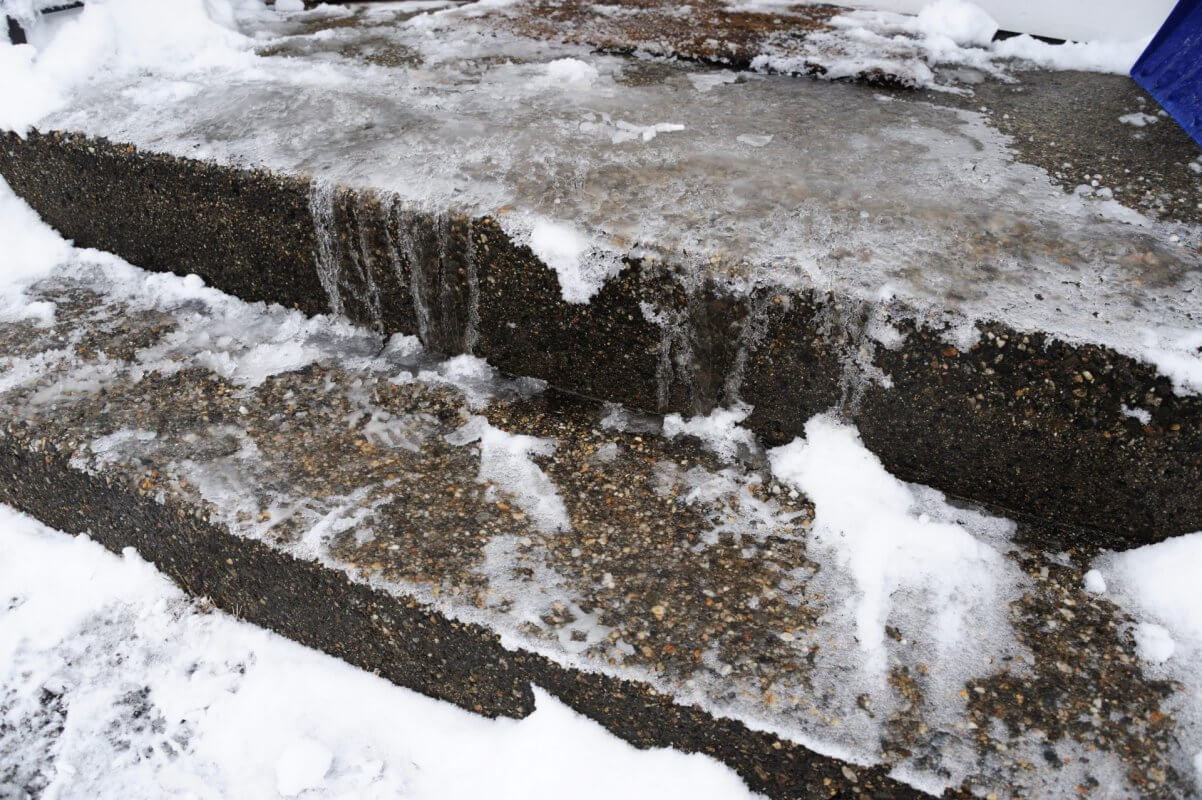What is the Best Method to Protect Concrete this Winter? As winter is right around the corner, you may begin to wonder what the best method of treating concrete is. Although road salt is the most common method of treating snow and ice, is it safe for concrete? Are there alternative methods to treat concrete? Methods of Treating Concrete Road salt, or rock salt, has been around for decades and is used to treat roads and sidewalks. It helps to make it safer for drivers and pedestrians to drive or walk across. Road salt doesn’t melt the ice, but rather it lowers the temperature that water freezes at. Water naturally freezes at 32 degrees Fahrenheit, and with the salt, it starts to freeze at 15 degrees. When the freeze-thaw cycle occurs, the pores in the concrete absorb the water and salt when melted. The effects of the water and salt create pressure in the concrete when it freezes back, causing it to crack and break apart. The salt also speeds up the process of corrosion on cars and infrastructure. The chemical reaction of the salt and the metal it touches can create rust overtime. Even though this happens to concrete and infrastructure, it still is the most used deicer. The United States uses between 20-30 million tons of salt each year to treat roads. With a number like that, some may wonder if there’s a more effective way to treat concrete in the winter. One of the alternatives to salt is beet juice. Beet juice has similar effects to salt. The sugars in the juice help to reduce the freezing point of water when mixed with salt brine. In order to reap its full potential, the beet juice needs to be applied to the road or sidewalk before it starts to snow or ice over. However, when it is applied, it doesn’t bounce around like rock salt does. It is sticky and can last longer in the spot it was poured at rather than salt. It also is safe for concrete, plants, animals and metals. This is essential for protecting the longevity of concrete as it doesn’t lead to it breaking down over time. However, some of the downsides are you need a lot of beet juice, which can be expensive. It also has the potential to smell and can leave a temporary stain until it is washed away. Other Solutions Even though road salt and beet juice act as deicers, there still lies a bigger problem. Concrete is still exposed to both materials. How can a homeowner or business owner protect their property for the long run from deicers? The answer lies with Vetro Fluid. Vetro Fluid is a concrete sealant and is used by spraying a coat over the surface of the concrete. As we talked about earlier, concrete is a porous material, and this can lead to it cracking and breaking overtime when exposed to salt and different elements. By sealing off the surface of the concrete, it closes the pores and leaves a protective coating on top. This leaves a permanent solution to protect concrete against salt, the freeze-thaw cycle, and other products and elements in the environment. American Concrete Services offers concrete sealing with Vetro Fluid. We will come out and apply a coat to the top of the surface, leaving you with a protected sidewalk, driveway, or patio. This will provide protection for your concrete this winter and for years to come. Previous PostNext Post



